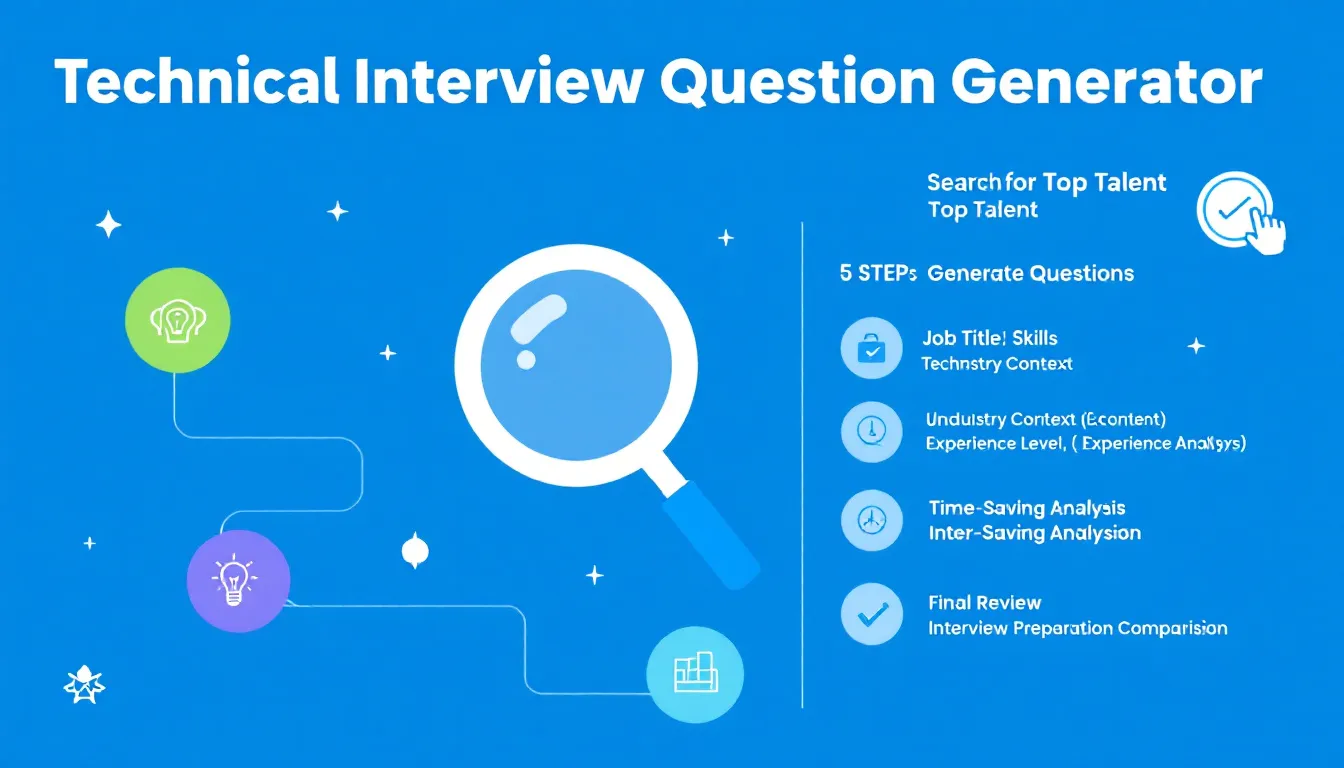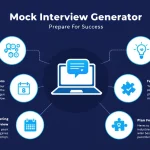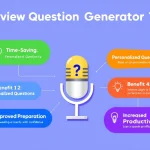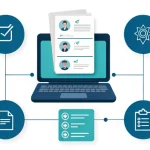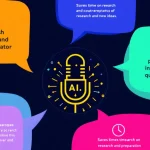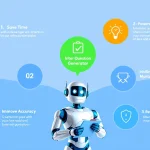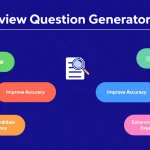Is this tool helpful?
How to use the tool
- Enter the Job Title
Example 1: DevOps Engineer | Example 2: Product Data Scientist - List Technical Skills (optional)
Example 1: Go, Prometheus, CI/CD | Example 2: ROS, C++, Computer Vision - Add Industry Context (optional)
Example 1: Logistics | Example 2: Agriculture Technology - Specify Experience Level (optional)
Example 1: Graduate | Example 2: Principal (10+ years) - Click “Generate Interview Questions”
The API (process_llm_form) returns a curated list; you review and copy it.
Quick-Facts
- Average U.S. cost per hire: $4,700 (SHRM, 2022)
- Structured interviews raise predictive validity from 0.20 to 0.57 (Highhouse et al., 2015)
- Teams spend 23 % of interview time writing questions (LinkedIn Talent Report, 2023)
- GDPR limits candidate-data retention to six months (GDPR Art. 5, 2016)
What does the Interview Question Generator do?
The tool analyzes your inputs and outputs 10-20 role-specific technical questions, ensuring consistency across candidates (Highhouse et al., 2015).
How do I submit inputs correctly?
Fill the required Job Title field, add any optional details, then press Generate. The API validates, processes, and returns JSON with formatted HTML.
Can I leave optional fields blank?
Yes; leaving them empty yields broadly applicable questions, but adding details improves relevance and reduces screening time by up to 30 % (LinkedIn Talent Report, 2023).
How many questions will I receive?
You typically get 12-15 questions. The exact count scales with the specificity of skills and experience level provided.
How current is the technical content?
The model ingests new tech terms quarterly, reflecting frameworks released within the last 12 months (RedMonk Language Rankings, 2024).
How do I copy the results?
Click “Copy to Clipboard”; the script copies plain text so you can paste into ATS or documents instantly.
Is the tool fair and compliant?
“Assessments must be job-relevant and fair to candidates” (ISO 10667, 2011). The generator follows this by aligning every question to the supplied job scope.
Important Disclaimer
The calculations, results, and content provided by our tools are not guaranteed to be accurate, complete, or reliable. Users are responsible for verifying and interpreting the results. Our content and tools may contain errors, biases, or inconsistencies. Do not enter personal data, sensitive information, or personally identifiable information in our web forms or tools. Such data entry violates our terms of service and may result in unauthorized disclosure to third parties. We reserve the right to save inputs and outputs from our tools for the purposes of error debugging, bias identification, and performance improvement. External companies providing AI models used in our tools may also save and process data in accordance with their own policies. By using our tools, you consent to this data collection and processing. We reserve the right to limit the usage of our tools based on current usability factors.
